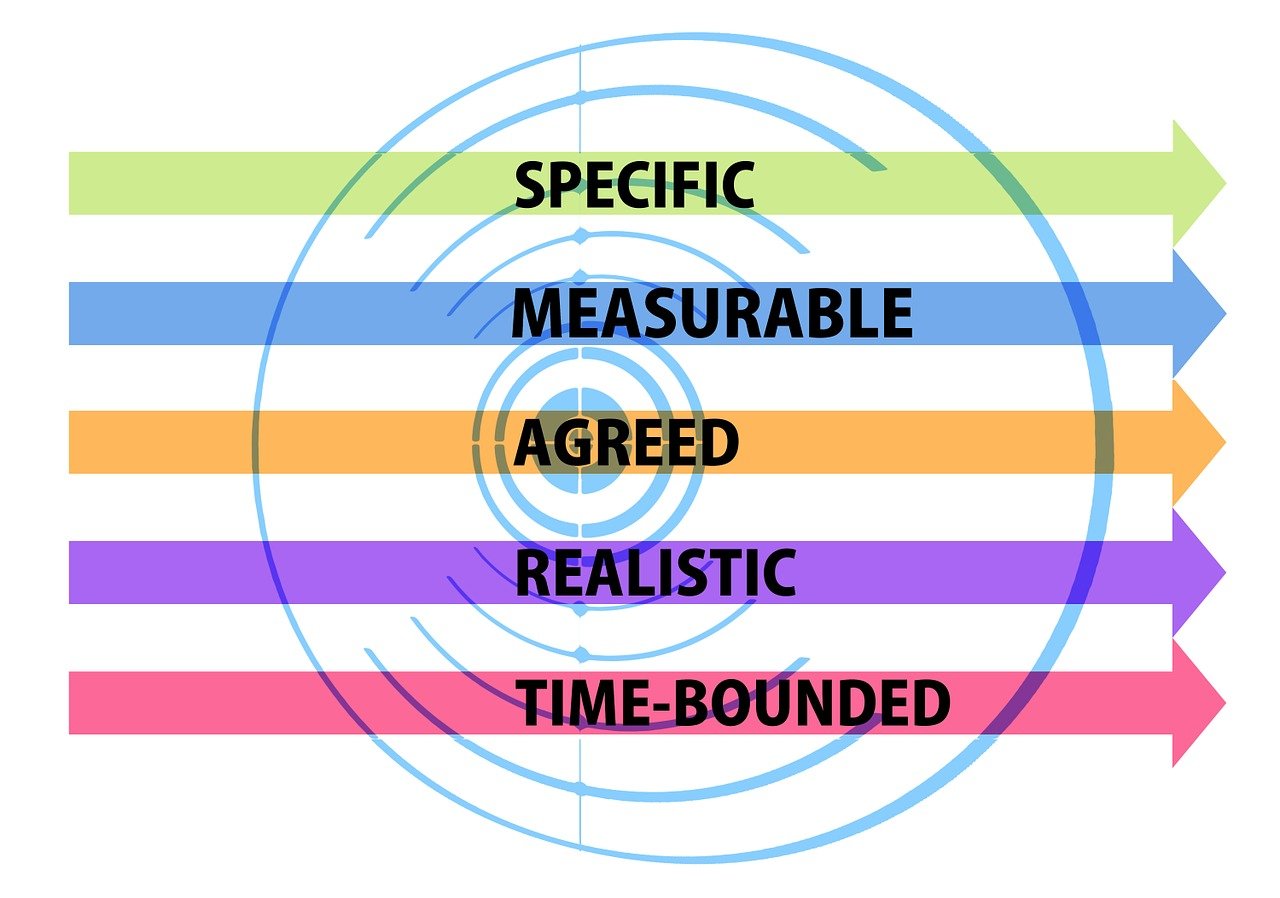Setting SMART Goals: A Guide to Effective Goal Orientation
Goal-tracking and setting is essential for both personal and professional development. They give us something to work towards something meaningful. Having specific and doable goals is crucial whether you want to advance your career, improve your health, or simply become a better version of yourself. The SMART goals framework is a useful tool for setting achievable goals. This blog will explain setting SMART goals, how to set them up, and why they are essential for success.
SMART criteria

The letters SMART, which stand for specific, measurable, attainable, relevant, and time-bound, are an acronym. This framework offers a methodical method for establishing and achieving your goal tracking standard. Let's examine each component of SMART goals in detail:
1. Specific - Your objective should be specific and clear. The fundamental questions of what, why, and how should be addressed. Your goal is easier to comprehend and work towards if it is more specific. Vague, generic goals like ‘lose weight’ or ‘get organized’ are difficult to achieve because there is no target to work towards. Instead, be specific – ‘lose 10 Kgs by July’ or ‘file all paperwork in color-coded binders by Tuesday.’ The more defined your goal, the easier it will be to take action.
2. Measurable - A measurable goal allows you to track your progress and determine when you have achieved it. It involves quantifying your objective. Continuing with the weight loss example, you can measure your goals by tracking calculable factors such as keeping a record of body measurements, time spent weight training, doing cardio etc.
3. Achievable - Your goal should be realistic and attainable within your current resources and constraints. While it's great to aim high, setting unattainable goals can lead to frustration and discouragement. Breaking large goals into smaller milestones along the way can also help make them feel attainable. If you've never taken up running before, attempting a marathon in a month might not be feasible, but completing a 5k might be.
4. Relevant - Your goals must align with your overall life priorities and values. There is no point in pursuing something just for the sake of having a goal if it does not matter to you. Take time to consider what is truly important before setting achievable goals to maximize your motivation.
5. Time-Bound - Without a clear deadline, it is easy for goals to remain abstract intentions. Having a specific time frame creates a sense of urgency and prevents procrastination. A timeline helps you pace your progress and stay accountable.
What is the Importance of SMART Goals

1. Clarity and Direction - SMART goals offer unmistakable clarity and direction. They remove any ambiguity or uncertainty, ensuring that everyone involved is aware of exactly what needs to be done. This clarity avoids misunderstandings and misinterpretations, making it simpler to unite individuals and teams behind a common goal.
2. Motivation Amplification - A clearly stated objective with a deadline can greatly increase motivation. Setting SMART goals serves as inspirational beacons that illuminate the way to success. They inspire your drive and determination by giving you a specific goal to strive for. The sense of accomplishment you feel as you advance and hit milestones helps to keep you motivated.
3. Accountability - You are less likely to put off or lose focus on your goal when you have specific benchmarks to gauge your progress. The accountability system that is already in place makes sure that you stay on track, accept responsibility for your actions, and adjust as necessary.
4. Efficiency - SMART goals encourage you to allocate your resources wisely and prioritize. You can focus your efforts on activities that directly contribute to achieving your goal. Measuring your goals acts as a way of guaranteeing success without losing hope.
5. Realistic Expectations - The "A" in SMART (Achievable) helps you avoid having unreasonably high standards. Setting unreachable goals can result in disappointment and demotivation, despite the fact that having big dreams is important. SMART goals assist you in striking a balance between aspiration and attainability, making sure that you are consistently setting achievable goals
How to Set SMART Goals

Now that you understand the importance of SMART goals, let’s go over the steps to create them:
1. Identify Your Goal - start by creating and defining a clear goal. What is it you want to achieve? Why is it important? Write down your goal in a specific and concise manner.
2. Make it Measurable - Determine the metrics you will use to track your progress. Having a quantifiable criterion and measuring your goals’ progression and stages makes it easier to accomplish and thrive in doing so.
3. Ensure it’s Achievable - Assess whether your goal is realistic within your current circumstances. Do you have the necessary resources, skills, and time to achieve it? If not, consider what you need to make it achievable.
4. Check for Relevance - Consider whether the goal is worth pursuing in the bigger picture of your life. This is a very important step as it can mean the difference between another failed resolution and a successful and significant step towards progress.
5. Set a Deadline - Establish a strict time frame for achieving your goal. Having the added pressure of a deadline can push you out of the loop of procrastination.
6. Write it Down - Put your SMART goal into writing, further amplifying your commitment. Keep your goal statement somewhere visible to serve as a reminder constantly. The bathroom mirror is always a good spot for a tidy sticky note.
7. Create an Action Plan - Break your goal into smaller segments. What do you need to do daily, weekly, or monthly to reach your goal? Planning the steps keeps you organized and focused.
8. Stay Flexible - The course of life is unpredictable, and things can shift. Maintain your commitment to achieving your goals while remaining flexible to any necessary changes.
9. Celebrate - Another very crucial step that makes achieving goals easier is to celebrate the accomplished tasks. Recognizing your achievements can motivate you in the pursuit of other challenges.